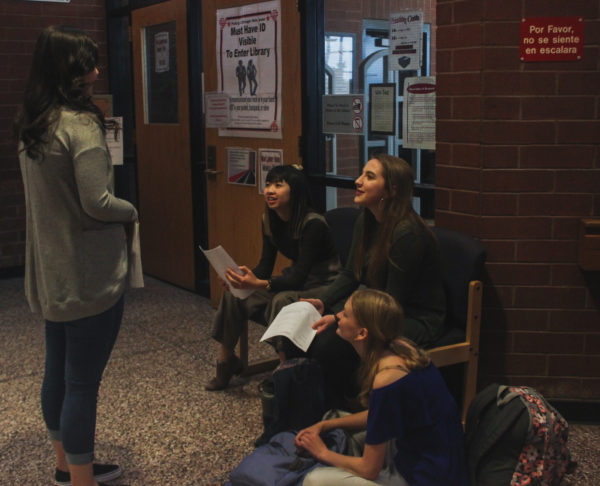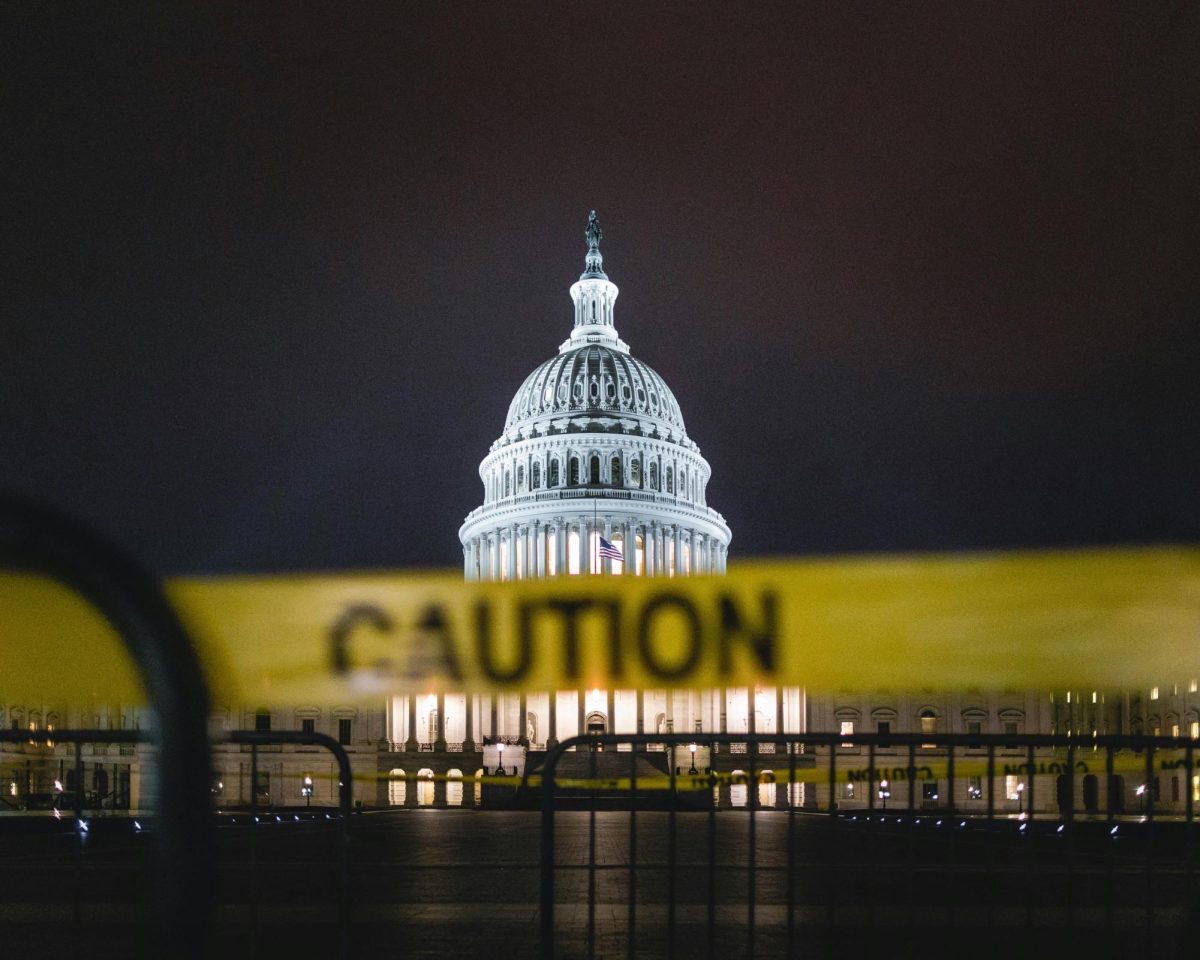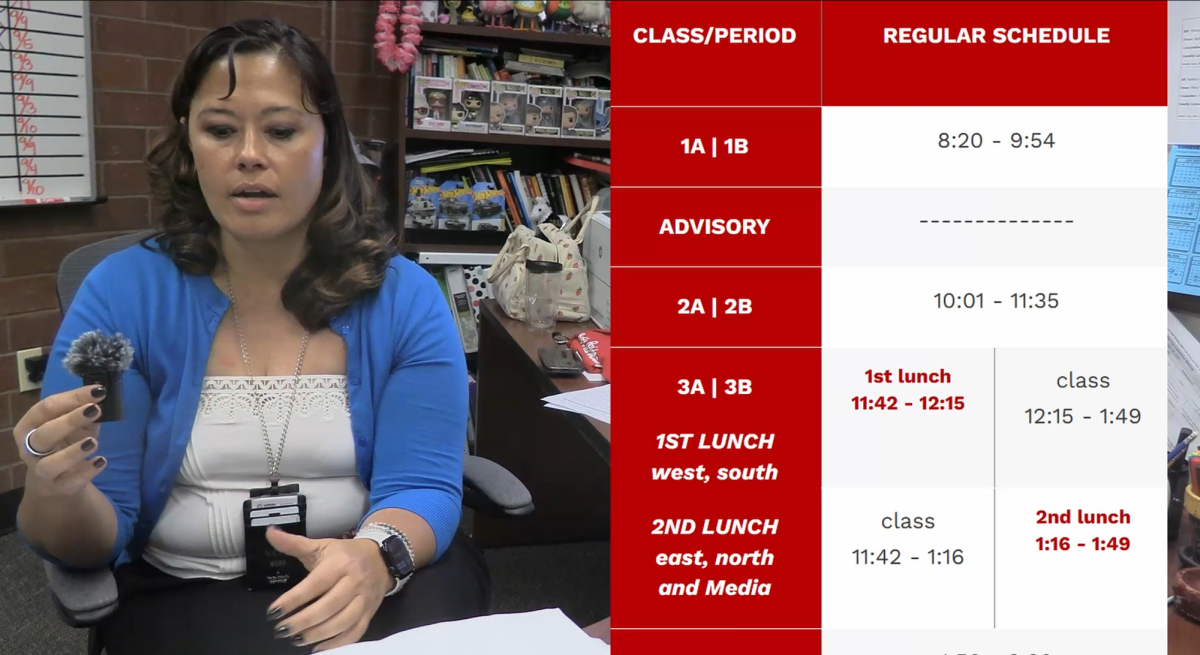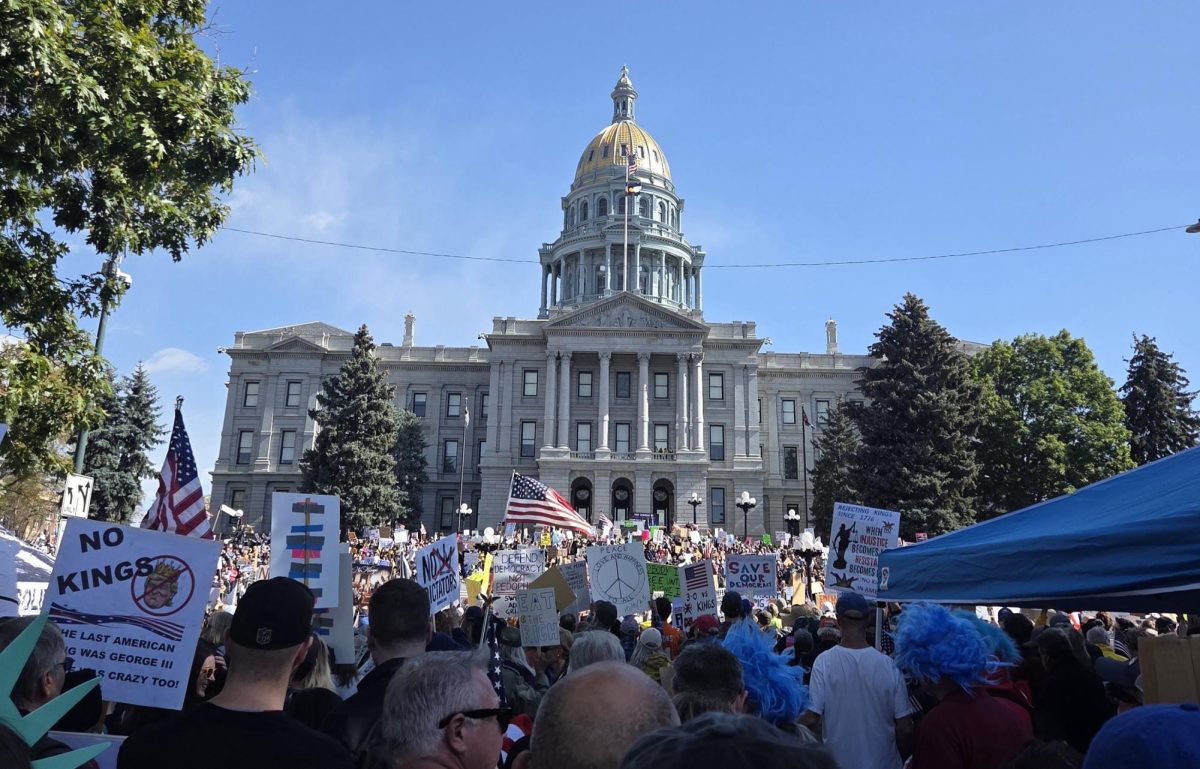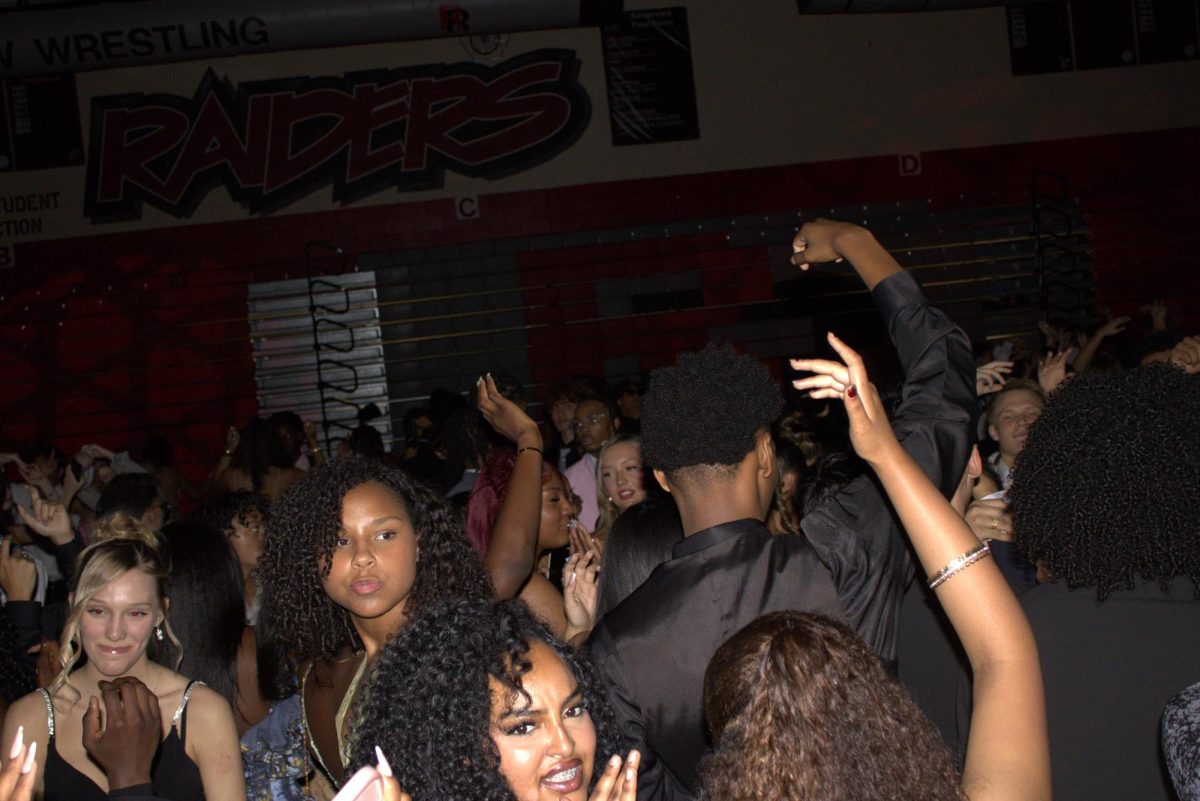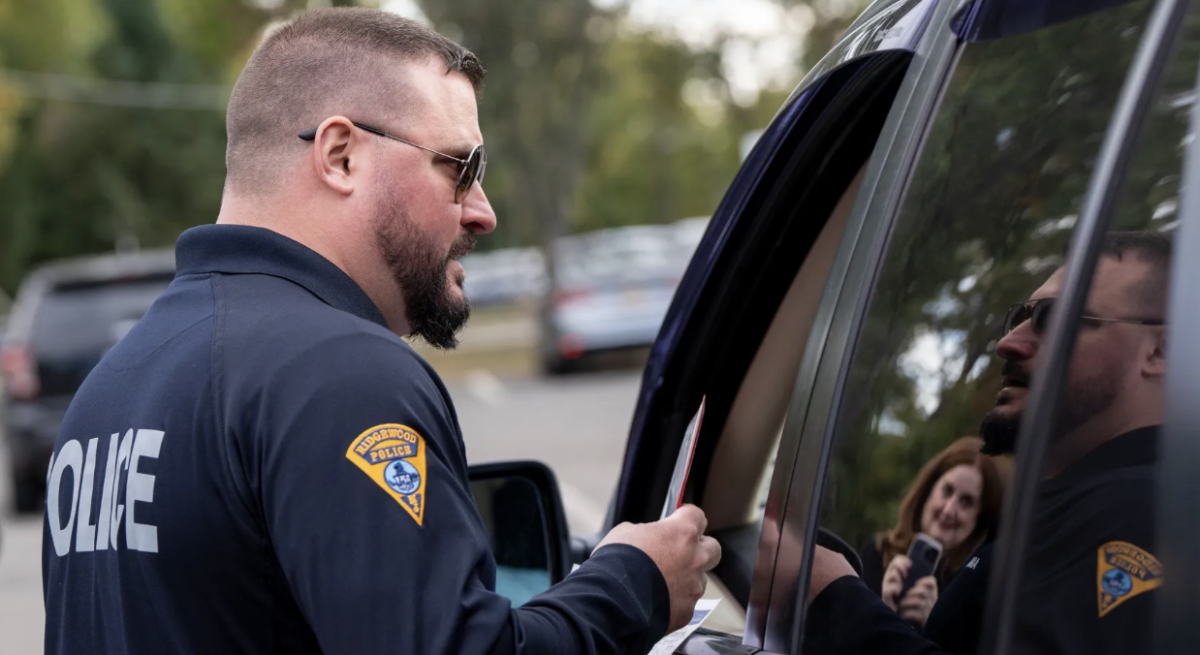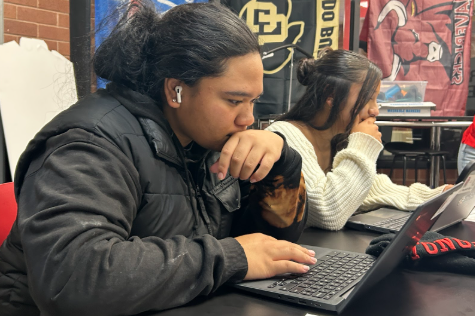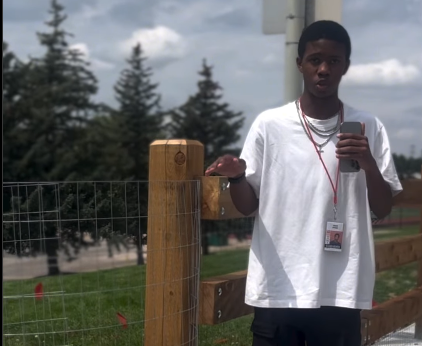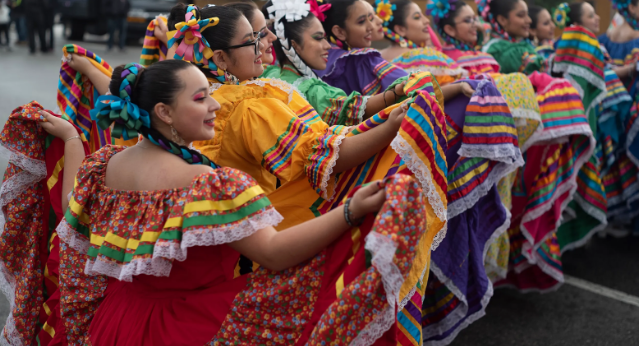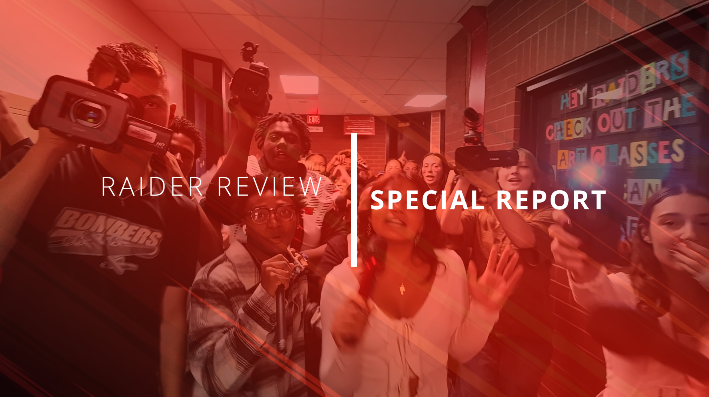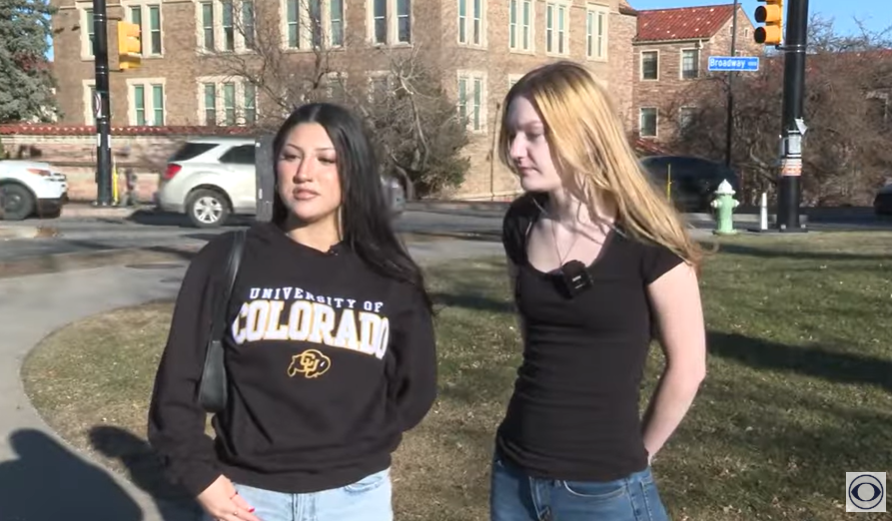Feature Photo by: Peter Vo – (From left to right) Vivian Tran (9th), Julia Stacks (10th), and Ellie Newman (10th), converse with each other while awaiting their turn to be called in for the interview. The Leadership Executive Council team along with a few teachers are conducting interviews for next year’s leadership team in the Library today.
It happens every January. The rustling accompanied by the chattering of students in the hallways. Posters hang tall in the hallway as waves of crowds check out the booming colors and catchy slogans wide-spread on them. Treats are handed out by candidates in the commons as leadership students compete with one another, preparing for potential new positions for the upcoming year.
It’s election season. And guess what? Your vote doesn’t matter as much as you think.
Leadership Sponsor Lily Dean explains, “campaigning is 10%, interviewing 30%, the public forum is 10%, teacher recs are 30% and the popular vote is 20%.”
Leadership follows a constitution that usually is voted on by the students in leadership when it comes to the election process every year. This year, the forum has taken the place of the essay, boasting mixed feelings from the candidates.
What surprises a lot of people is how much the popular vote is factored into the overall election process. Students in leadership represent the student body, so when confronted with only a 20% factor, a lot of talk arises within the community.
Every year, the student council class renews its leadership board, replacing it with a new wave of leaders for the next year. This process has been a tradition at Rangeview High School for as long as many teachers remember.
It’s an exciting time for many — especially the ones competing — to be able to see the next generation of student leaders at Rangeview.

Rangeview’s Leadership class has always impacted the school’s atmosphere in a multitude of ways that are not always acknowledged by the student body. Events like homecoming, winter formals, prom, fundraisers, and so on, have all been worked tremendously hard by leadership students as many agree.
Several say this pillar of success and dedication has been encapsulated within leadership’s reputation for quite a long time, making election season as paramount to the school’s student body as any big change. But how valuable is a student’s vote?
With this in mind, there has been a lot of chatter about this year’s change election process that includes a newly implemented open forum.
“One of the things that we’re changing this year is adding a forum as a process of being elected. Any candidate running for anything would be required to be apart of a forum where people can come in and ask questions about each of the people and what they stand for and why they’re running for the position,” senior leadership delegate Lisitte Mora commented.
These changes occur every year or so because of the election qualification process.
Every aspect of a student is measured when running for leadership. This includes an interview, essay, and so forth, to measure a student’s capability as a leader in the school.
But again, shouldn’t a student’s capability be decided by the peers that they are going to govern?
“I think it should be raised higher in certain circumstances. It’s there to prevent a popularity contest, where students who have real leadership skills to offer aren’t actually heard because they aren’t known as well . . .” Gifted and Talented Coordinator Kelly Bakersky said.
Diving deeper in, what people find to be interesting about this percentage is that if Student Leadership supports the student body, shouldn’t the student body have the biggest say in who gets to govern things that go in the school that affects them?
“The student body is very important. I think the percentage should be raised to 50%,” junior candidate Ali Powell says.

But many respond against them wanting to raise the percentage cap since many students don’t really care at all.
Senior Abel Mesfin says, “I don’t think it should be raised. I mean it won’t affect me because I’m a senior, but a lot of kids don’t vote because they don’t care. So why raise the percentage when most of the student body doesn’t really care about the election at all?”
This proves to be a problem in the student body. Many students just see a name they recognize and go vote for that name because they don’t know anything about the other candidates. The election process in the past years have been so involved with the interview, essay, and teacher recs, that the student doesn’t really see the true colors of who they’re voting for.
Bakersky extrapolates on this idea, “I think our student should have a bigger voice but they should also be more informed about what they’re voting for. Be able to discern quality candidates as part of that process.”
This year, Student Leadership has recognized this problem and have introduced the forum, a place where students themselves can virtually interview the candidates in front of an audience; however, this introduction form is still only worth 10%.
When asked about if the student vote should be raised, Dean replies, “I don’t really have an opinion of whether or not it’s too high or low. It’s not chosen by me . . . when we go over the constitution for the year, the Student Leadership vote on the percentages. There are 80 of them so I feel like they’re a pretty good pull from the school. And if they vote that it’s enough, then I support that.”
It’s a hard number to manage and decide on since so many students don’t prioritize these elections that are ever so important to how the school is managed and ran.
But the students in leadership have their own thoughts on what makes a powerful leader.
In an anonymous survey handed to Student Leadership in November that was given to the Review, many students in the class came up with definitions for what makes a good leader:
- “The people who truly care about helping lead others. The people who enjoy seeing others learn and grow. The people who spread good ideas for good causes such as helping others.”
- “An exceptional Leader is someone who has the ability to stand up for what they believe in and contribute new ideas to resolve an issue, yet they know when to take a step back to listen to others, or reevaluate their ideas.”
- “Drive, determination, passion is what makes an exceptional leader.”
These responses boast Student Leadership’s understanding of their role within the school and their will to do everything possible to enrich such an environment.
Far from perfect, the leadership election is still mending its constitution to fit the needs of the student body. For now, it seems the percentages are justified, but never permanent. Student Leadership is always looking for ways to improve the election process; furthermore, events like the Forum are introduced in an attempt to raise student awareness on their upcoming leaders.
The student election is a collaborative effort. As important as the leadership candidates hold in maintaining a good campaign and image, it’s just as important for the student body to be knowledgeable in who is filling in such salient roles in the Rangeview community.
